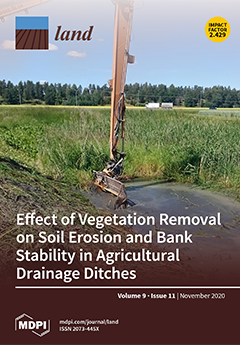Resource information
Urban population decline has been extensively described as a triggering factor for community segregation and fragmentation, as well as for land use vacancy and house/flat vacancies, resulting in rising interest in strategies of green infrastructure expansion aimed at citizens’ wellbeing and urban ecosystems. However, city-scaled green infrastructures can be formed by different typologies of outdoor spaces, providing diverse social affordances that can impact community cohesion and resilience differently. This study focuses on the relationship between preferences for particular outdoor space typologies and for community friendliness, under contexts of urban population decline as a migratory process. In the context of Lisbon, a European capital-city experiencing migration and immigration but also urban population shrinkage in some areas of its metropolitan region, the study used conjoint analysis to test participants’ preference for different attributes of their urban environment. The results showed a significant positive correlation, in the sample living in depopulating neighbourhoods, between preferences for friendlier communities and for outdoor spaces of an enclosed and protected character (r = 0.34), compared with no significant correlation in the studied non-depopulating neighbourhoods. These results do not deny the importance of public parks of wide dimensions as a strategy for shrinking cities’ green infrastructures but suggest that urban citizens living in depopulating neighbourhoods have a higher awareness of the importance of small-scale, enclosed outdoor/green spaces to give a stronger sense of social connectedness. This study contributes to the general literature on urban shrinkage by showing that these sensitive conditions can potentially change behaviour and use of public spaces in urban contexts.


